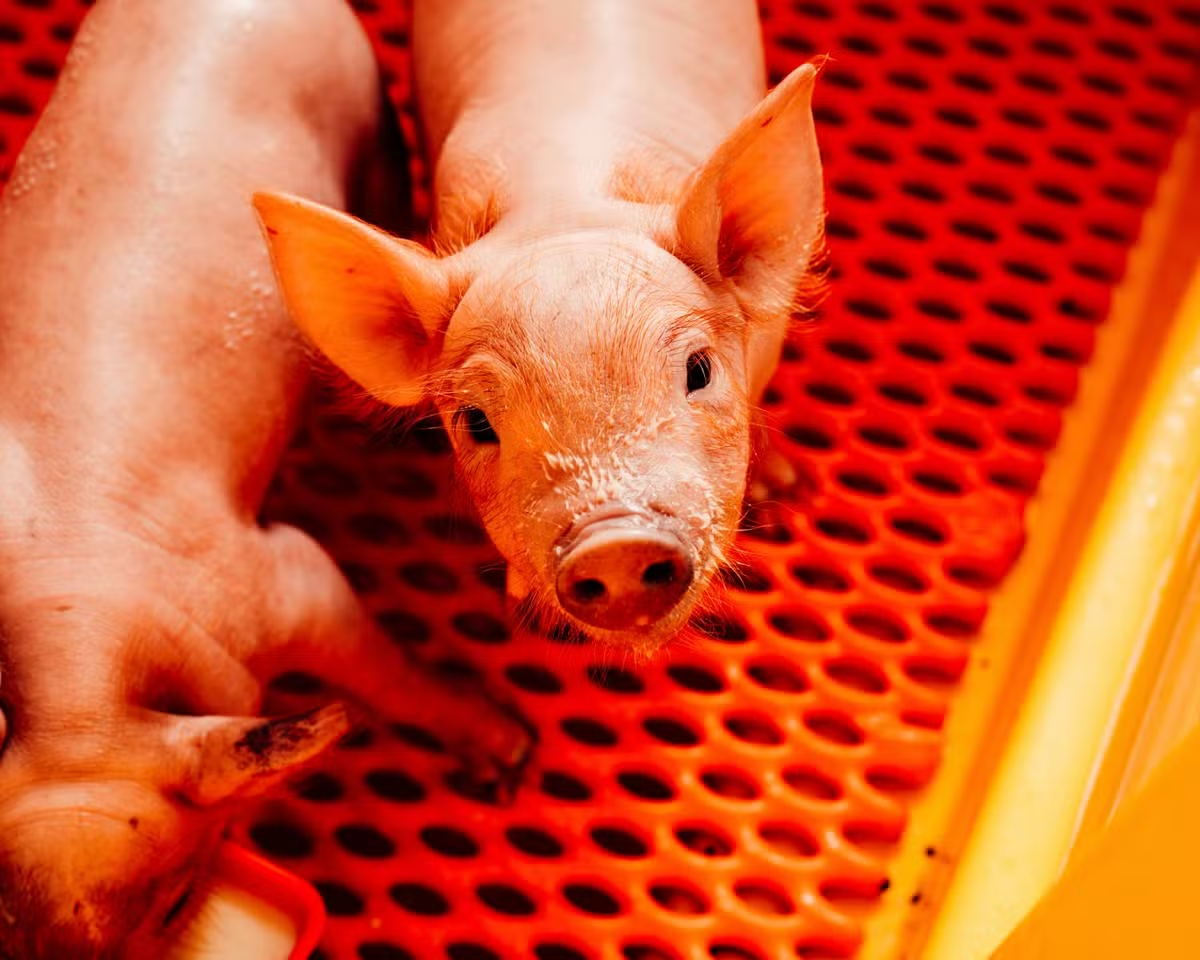
Last month, hundreds of scientists from around the world gathered in a modern glass complex in Geneva to share data, review cases and celebrate impressive progress.
Their research was once considered the stuff of science fiction. This is a so-called xenotransplant, which involves replacing a diseased human kidney, heart, or liver with an animal organ.
However, as scientists exchanged information, it became increasingly clear that this was no longer fiction. These were close to an outcome that could help alleviate the shortage of donated organs, a problem that affects all countries.
Transplantation of organs from genetically modified pigs that are engineered to avoid rejection by the human body is beginning to show great promise.
“The future has arrived,” says Mohammad M. Mohiuddin, president of the International Xenotransplantation Society, who organized the conference.
Participants were told that two patients in their 60s, a man from New England and a woman from China, survived for more than six months on genetically modified pig kidneys. (The organ had to be removed and the patient was returned to dialysis.)
Several clinical trials using these organs have begun in the United States. The first participant in a study led by biotech company United Therapeutics has just received a kidney from a pig that has undergone 10 rounds of gene editing.
kidney, liver, heart
Next year, another company, EGenesys, will begin testing kidneys transplanted from pigs with 69 gene edits. The company also plans to begin testing pig liver for use in vitro in patients with chronic liver disease.
The company also hopes to begin offering pig heart transplants to babies born with rare and serious congenital heart defects.
And in China, where more than a million people suffer from kidney failure, workers are building the largest facility of its kind to house thousands of genetically modified pigs whose organs will be used for transplants.
Significant obstacles remain. While scientists are learning more about how to control the immune system to reject foreign tissue, they are discovering that pig kidneys are not working as well as expected in humans.
Genetically engineered pigs are also raised in pathogen-free facilities and tested before their organs are harvested, and tested for viruses or viral genetic material at least twice and detected in transplanted organs.
Scientists revealed one such case for the first time at this conference. The concern is that infected organs could trigger a wave of viral infections in humans.
Still, scientists saw the disorder as a puzzle to be solved. Many compare the current situation to the situation in human transplants around 1983, when the powerful immunosuppressant drug cyclosporine became available and helped prevent rejection of transplanted organs.
— I think we are at a tipping point, argues David KC Cooper, a Harvard University scientist and consultant for EGenesis, which produces genetically modified pigs for transplantation. — We have already shown that pig organs work well by performing several transplants.
Cooper said regulators should welcome the impending wave of genetically engineered pig transplants because many patients have no other options.
— I think it’s the FDA (US regulators) If more people could receive pig organs, it would be much more peaceful, he says. — More and more transplants will be performed in the future, and the results will only improve.
There is growing interest around the world in obtaining organs such as kidneys from genetically modified pigs. Chronic diseases such as diabetes and high blood pressure damage the kidneys, and these conditions are on the rise everywhere due to poor diet, smoking, alcohol consumption, and lack of physical activity.
Even as global temperatures rise, dehydration can harm your kidneys.
Deusdedit Mbangizi, director of health products policy and standards at the World Health Organization (WHO), told the conference that kidney disease is currently the ninth leading cause of death in the world and is expected to become the fifth leading cause of death by 2040.
In wealthier countries, patients can continue to receive dialysis, but the treatment is debilitating. But in low- and middle-income countries, dialysis is unaffordable and kidney failure is a death sentence, Mbangizi said.
There is a worldwide shortage of donated human organs for transplantation.
— Everywhere I go, I hear about transplant waiting lists — Mbangizi said.
Around 170,000 organ transplants are performed annually around the world, but this only meets 10% of the need, he said.
For example, China performs fewer kidney transplants between humans than the United States, despite having a population of 1.4 billion, more than four times the population of North America.
Cultural beliefs that emphasize burying whole, intact bodies are deeply ingrained in many societies and contribute to the severe shortage of donated organs.
According to Takayuki Hirose, an assistant professor at Hokkaido University Hospital, this thinking has led to a severe shortage of donated kidneys in Japan. Patients in Japan can wait more than 15 years to get a kidney, with 300,000 people on the waiting list, Hirose said.
He explained that many Japanese believe that an individual’s soul resides in their body even after death, which is a barrier to donating. In Japan, only about 2,000 kidney transplants are performed each year, and most organs are donated by living donors such as family members.
Older patients are hesitant to participate in the registry because of long waiting lists. If you sign up for a kidney test at age 55, you’ll have to wait until you’re at least 70, after which you won’t be able to receive an organ donation.
One of the biggest challenges in xenotransplantation is weakening the patient’s immune system enough to prevent organ damage and rejection, but not enough to harm the organ.
Early experimental studies involved transplanting pig organs into non-human primates. But doctors are now seeing stronger memory T-cell responses in human patients that protect against previously encountered pathogens, said Tatsuo Kawai, a Brigham general and Harvard professor who has performed successful xenotransplant surgeries.
Kawai suggested this could be because humans eat pork while primates do not, meaning humans may be sensitized to pig organs.
— If the patient has never eaten pork, xenotransplantation may be easier, he says.
The immune response may also play a role in another persistent problem in transplanted pig kidneys. That means the organ can release large amounts of protein into the patient’s urine. This syndrome, called proteinuria, indicates that the pig’s kidneys are not functioning properly and may not last long.
In some transplanted kidneys, blood clots have also been found in small blood vessels that can damage the organ.
In late October, surgeons in Boston removed a pig kidney that had been transplanted into a 67-year-old New Hampshire man whose kidney function was deteriorating. Tim Andrews, a patient who received a transplant in January, has lived longer with a pig kidney than anyone before him.
Scientists still don’t fully understand why transplanted pig kidneys fail. Some researchers have suggested that further gene editing in pigs could solve the problem by allowing the organs to better evade the immune response.
Another possibility is that the recipient’s immune system needs to be more strongly suppressed to protect the transplanted kidney.
“We can now hope that patients will survive the surgery and be off dialysis,” predicts Richard N. Pearson, a professor of surgery at Harvard Medical School and the Massachusetts General Institute who has done extensive research on pig heart transplants. — But will they suffer from protein loss problems, or will this become a nuisance that can be managed by giving more drugs or making further changes to the pigs? This is the main question now.
However, that’s not all.
Scientists also need to reassure the public that xenotransplants will not introduce new animal pathogens to humans. However, regulatory frameworks to ensure patient safety and protect public health remain weak in most parts of the world, including Europe.
Of the approximately 30 countries that responded to the European Organ Transplantation Committee survey, one-third said they had no legislation covering the transplantation of animal organs, tissues and cells into human recipients, said Ralph R. Tonges, a scientist who heads the committee’s xenotransplantation working group.
Traces of cytomegalovirus, which is known to infect pigs, have been found in the first patient to receive a genetically engineered pig heart. Bartley Griffiths, a surgeon at the University of Maryland who performed the surgery, said the latent virus may have taken hold of the transplanted organ, leading to the patient’s rapid deterioration and death.
At the Geneva conference, researchers revealed that they detected RNA from another swine virus in the body fluids of patients who received pig kidney transplants at NYU Langone Health last year. This virus, called atypical porcine pestivirus (APPV), is not associated with human disease and does not infect human cells.
Later tests on samples taken from the pigs revealed that this was the source of the virus, and APPV was detected in the transplanted organ itself.
Pigs raised for transplantation are tested for about 16 different pathogens, but neither the animals nor the herd were tested for APPV because it is “not considered a pathogen of concern,” said scientist Simon H. Williams.
— To date, there have been no cases of APPV infecting hosts other than pigs — Williams explains. — In fact, humans have never been infected by a virus in the Pestivirus genus. They are mainly livestock viruses.
Still, constant monitoring and risk assessment is required. He emphasized that only RNA was detected, not the virus itself, and that while RNA alone is not infectious, virus particles can.
Scientists say metagenomic screening, which can detect any non-human DNA rather than just testing for specific viruses, could be used to screen for pathogens in pigs.
The big concern is that the swine virus could mutate and infect transplant patients, causing an outbreak or pandemic. The fear of disease transmission from animals to humans weighs not only on the general population but also on patients with kidney failure who would benefit most from xenotransplantation.
Heather Murphy, who presented the results of a large-scale survey of kidney patients by the National Kidney Foundation at the conference, said these patients would be far less likely to consider pig organ donation if they were at risk of transmitting zoonotic diseases to themselves and their families.
“That was the biggest concern of the patients,” Murphy said. — When the risk extends to loved ones or entire communities, it becomes the deciding factor for many.



